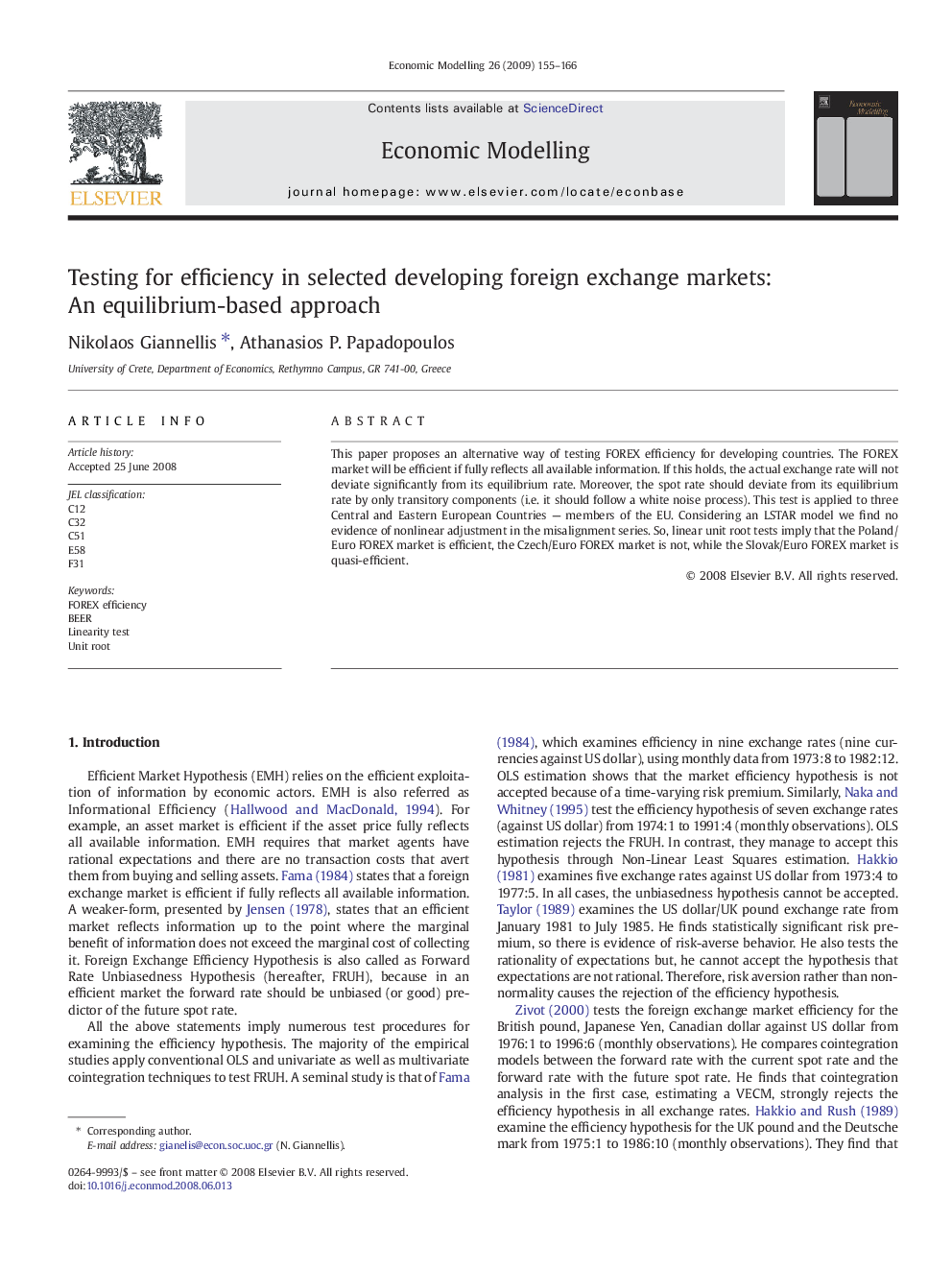| Article ID | Journal | Published Year | Pages | File Type |
|---|---|---|---|---|
| 5055952 | Economic Modelling | 2009 | 12 Pages |
Abstract
This paper proposes an alternative way of testing FOREX efficiency for developing countries. The FOREX market will be efficient if fully reflects all available information. If this holds, the actual exchange rate will not deviate significantly from its equilibrium rate. Moreover, the spot rate should deviate from its equilibrium rate by only transitory components (i.e. it should follow a white noise process). This test is applied to three Central and Eastern European Countries - members of the EU. Considering an LSTAR model we find no evidence of nonlinear adjustment in the misalignment series. So, linear unit root tests imply that the Poland/Euro FOREX market is efficient, the Czech/Euro FOREX market is not, while the Slovak/Euro FOREX market is quasi-efficient.
Related Topics
Social Sciences and Humanities
Economics, Econometrics and Finance
Economics and Econometrics
Authors
Nikolaos Giannellis, Athanasios P. Papadopoulos,
